Opinion
Here I comment on a wide range of issues from education to politics, the arts and more. I welcome lively and opinionated debate, so please leave your comments.
-
Six ways to engage local communities through creative writing at St Mary’s Church, Walthamstow
St Mary’s Churchyard in Walthamstow is more than a restored historic site. It is a living commons, a place where gardening, conversation, memory, and creativity quietly intertwine. On a January afternoon, we gathered there with students from the MA Creative Writing and Education at Goldsmiths for a community writing session that showed just how powerful local, place-based creative work can be. Led by two MA students, Sophie and Priyanka, the session moved fluidly between sensory attention and playful experimentation. Smell, wind, weather, laughter, discomfort, poetry, and the natural world all became entry points into writing that felt inclusive, serious, and alive. Volunteers and students wrote side by side, discovering that creative confidence grows not through expertise but through permission, attention, and shared experience. What emerged was a practical, replicable model for community creative writing. One that does not demand performance, prizes curiosity over polish, and allows ecological awareness to arise through voice rather than instruction. This post reflects on six key practices from the session, offering ideas for anyone interested in engaging local communities through creative writing, mindfulness, and place.
-
Five Ways to Teach Creative Writing to Teenagers
Forgive the comic strip. It is there simply to convey the energy, playfulness and creative momentum of what was a genuinely joyful afternoon of creative writing at Goldsmiths. Recently we welcomed a brilliant group of Danish teenagers to campus for a creative writing workshop, led by their teacher Margit from DATE and NATE. They arrived full of curiosity, quickly made the space their own, and threw themselves into the session with enthusiasm, laughter and serious thought in equal measure. The workshop was led by three MA Creative Writing and Education students, Niki, Elizabeth and Priyanka, who guided the group through a series of carefully structured but low-stakes activities. From six-word stories and the joyful chaos of Consequences, to thinking about character through one vivid detail, conflict as the engine of story, and setting as atmosphere rather than description, the session offered a clear reminder of what works when teaching creative writing to teenagers. The comic strip gestures towards these ideas in a playful way, but what it really points to is something deeper. Teenagers being welcomed into a university. Future teachers developing their craft. And young writers discovering that language is something to explore and enjoy rather than fear. A brilliant snapshot of the MA Creative Writing and Education in action.
-
To Be Hamnet or Hamlet; that is the question — Seven lessons I learnt from watching Hamnet
To Be Hamnet or Hamlet; that is the question Seven lessons I learnt from watching Hamnet NB: This review contains spoilers. What if Hamlet is not just a tragedy about revenge, but an unfinished conversation with grief? I watched Hamnet at my local cinema, Crouch End Picturehouse, and came away unsettled, moved, and intellectually provoked. I taught Hamlet for A level English for years and thought I knew the play inside out. This film quietly dismantled that confidence, not by claiming new facts, but by offering a bold emotional reading and asking the viewer to live inside it. The premise is historically sound. Shakespeare’s son Hamnet died aged eleven in 1596; Hamlet was written several years later. What the film explores is what can never be proven, how grief might echo, displace itself, and reappear through art. From Anne Hathaway’s embodied mourning, to forests that seem to think alongside human loss, to the suggestion that Hamlet functions as a kind of family therapy, this is a film that invites big questions. I ended up getting seriously drawn in, researching grief theory, psychoanalysis, family systems, authorship, and early modern ideas of selfhood. Freud sits alongside contemporary bereavement research; Shakespeare studies meet post Covid loss. You will not read a better informed blog on this film. This is a flawed, troubling, and genuinely thought provoking piece of cinema. Shakespeare specialists may wince; others may cry; some people walked out. I recommend it with curiosity rather than reverence. If you’re interested in how stories allow us to enter difficult emotional spaces without explaining them away, this one is for you. If you’re reading this on Instagram, please paste the link into your browser to access the full article.
-
Free Human Givens Therapy Sessions, A Practical and Supervised Offer
I’m currently offering a small number of free Human Givens therapy sessions as part of the final stage of my professional training. This is a practical, solution focused approach that does not require you to talk about childhood trauma unless you want to. The work is often closer to coaching and focuses on challenges you are dealing with now, such as anxiety about work or money, relationships, confidence, or feeling stuck or overwhelmed. All sessions are confidential, ethical, time limited, and fully supervised by an accredited and registered Human Givens therapist. You can read more about my background, training, and approach, including an FAQ, here: https://www.francisgilbert.co.uk/therapy/ If you are interested, please email me at sir@francisgilbert.co.uk . I will reply personally and in confidence.
-
7 Ways For Teachers to become Researchers
In December 2025, I delivered an online session for FE lecturers as part of the British Library Research Network, working with Debbie Bogard of the British Library. We explored seven things every teacher should know about research, using the original Alice in Wonderland manuscript as a metaphor for how inquiry really works. Research is never perfect or polished. It is exploratory, creative, full of revision and curiosity, just like a teacher’s everyday practice. We introduced practical ways to develop a research question, map its key ideas, choose an appropriate methodology, evaluate the credibility of data, and create a meaningful literature review. We also encouraged lecturers to think about more imaginative forms of sharing findings, including podcasts, infographics and multimodal projects. Examples from the Parklife project showed how creative participatory research can have a significant impact on communities and young people. The central message of the session was that research is an act of professional courage. It is not reserved for academics. With the support of the British Library Research Network, FE educators can shape their own inquiries, strengthen their critical thinking, and generate new knowledge that benefits learners and the wider sector.
-
Honouring the Humanity of an Exceptional Student: Zhe Wang
The conclusion of the trial into the tragic death of Zhe Wang has brought renewed sadness to our community, but it also reminds us of the importance of remembering who she was beyond these events. Zhe was a gentle, attentive presence on the MA Creative Writing and Education, someone whose calmness and kindness shaped the spaces she entered. Her writing revealed a rare sensitivity to nature, stillness, and the quiet movements of thought, offering readers a way to slow down and reconnect with the world. Her classmates honoured her with great care, gathering her poems and prose into a beautifully produced anthology that reflects both her creativity and the affection she inspired. As we commemorate her, we hold close her humanity, her thoughtful way of being, and the luminosity of her work. Through her words and through our remembering, Zhe’s presence continues to shine.
-
If I Were to Hold a Retreat for Entitled Men
🔥 If I were to hold a retreat for entitled men, I’d start with a fire. Kelly Reichardt’s The Mastermind (2025) burns with quiet devastation. It’s not a heist film but a parable — a portrait of what happens when unmet needs twist imagination into delusion. Drawing on the Human Givens approach and ideas from The Mindful Creative Writing Teacher (Gilbert, 2024), this reflection explores how men lose themselves when creativity serves ego rather than empathy. Read the full essay: The Mastermind: A Parable for Entitled Men and the Search for Meaning 🕯️ For teachers, therapists, and fathers alike, it asks one question that lingers long after the flames fade: What is it you really need? WARNING: This post contains plot spoilers for the film, The Mastermind (2025)!
-
The Lady from the Sea: Five Lessons We’ve Lost in Translation
Simon Stone’s new adaptation of Ibsen’s The Lady from the Sea at the Bridge Theatre, starring Alicia Vikander and Andrew Lincoln, is exquisite and psychologically nuanced — yet something vital has ebbed away. In translating Ibsen’s Fruen fra havet into modern English realism, the production trades myth for therapy, danger for empathy. This article explores five lessons the original still teaches us (about desire, freedom, landscape, symbolism, and voice) and what is lost when we tame the sea into a lake.
-
Five Things English Teachers Can Teach Us About Reading, Writing, and Living
I recorded this episode of the Mindful Learning Podcast with Anthony Cockerill, director of the National Association for the Teaching of English (NATE), because I believe English teachers have so much to teach us beyond the classroom. Our conversation was a chance to explore what reading, writing, and language mean for all of us as human beings, not just for students in schools. Anthony spoke passionately about the life-changing power of reading for pleasure, the way writing can help us respond to and reflect on life, and the importance of valuing every community’s language. He reminded me that stories shape who we are and that teaching thrives best in community, not in isolation. These are not just classroom lessons — they are life lessons. I wanted to share this podcast because, at a time when education is often framed in narrow, utilitarian terms, we need to remember the broader value of English. Reading, writing, and language are not luxuries; they are ways of being human, of building empathy, resilience, and imagination. Listen to the full conversation and read the blog here: 👉 https://www.francisgilbert.co.uk/2025/09/five-things-english-teachers-can-teach-us-about-reading-writing-and-living/
-
The Mindful Learning Podcast: 7 Things You Should Know About Therapy
If you’re reading this on Instagram, please paste the link into your browser to access the full article. In the latest Mindful Learning Podcast I spoke with therapist Bradley Riddell about what therapy is really like. We explored why therapy is never one-size-fits-all, why humour and trust matter, and how clients often already carry the resources they need. As Bradley told me: “Being in the room, you’re already leading the client to a collaborative venture… If you don’t respect the sanctity of the person sitting in the chair with you, you’ve no business being in the therapist’s chair.” Read the blog “7 Things You Should Know About Therapy” for the full write-up, including Bradley’s insights and references to leading thinkers like Janina Fisher, Carl Rogers, and Aaron Beck.
-
Five things parents should know about helping their children succeed at school
Reflections from my appearance on LBC Breakfast Show, 21 August 2025 This morning I joined LBC’s breakfast show (with a stand-in presenter for Nick Ferrari) to talk about GCSE results day, inequality, and what parents can do to help their children succeed. It was a wide-ranging, challenging conversation that touched on poverty, parental support, and the pressures on teachers. In my blog I’ve shared five key things parents should know: from why home support matters more than class, to how daily routines and resilience make a real difference. I wanted to write this piece to distil what we discussed on air, connect it to the research, and offer something useful for parents navigating the anxieties of results day. You can read the full article here: www.francisgilbert.co.uk If you’re reading this on Instagram, please paste the link into your browser to access the full article. #LBC #GCSEResults #Education #ParentalSupport #Inequality #Teaching #FrancisGilbert #MindfulParenting #ParentingTips

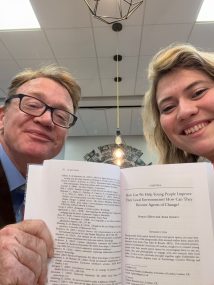
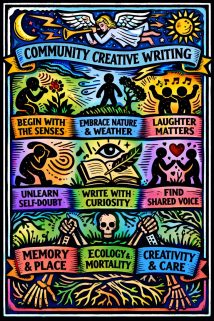
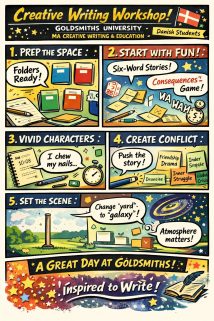
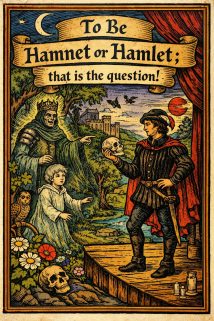
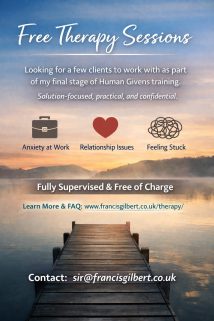
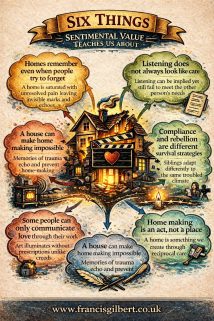
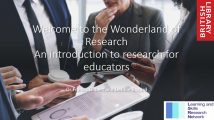
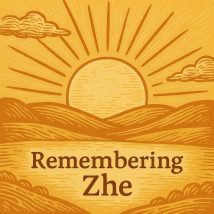
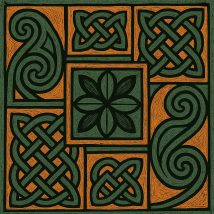

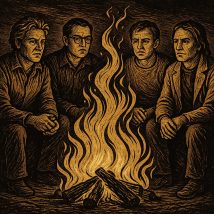
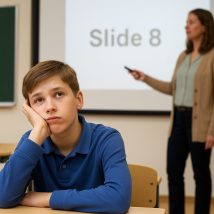
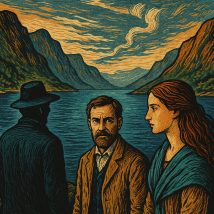
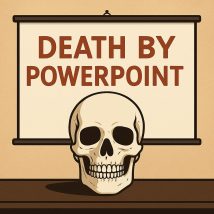
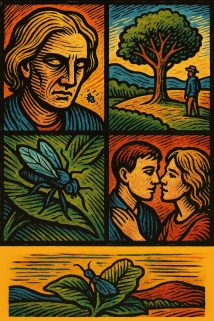
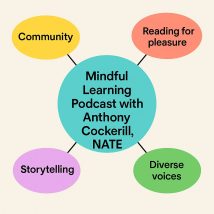
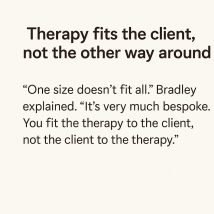
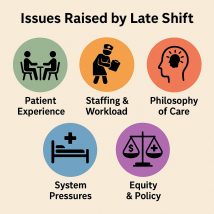
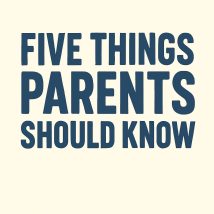
Five Things I Learnt About Winning from Marty Supreme
What does it really mean to win? I went to see Marty Supreme expecting a sports movie, or at least a film about ambition. What I came away with was something darker and more unsettling. A portrait of winning at all costs, and the quiet wreckage left behind when success becomes the only value left standing. Ping pong is treated with utter seriousness in this film. No irony, no wink. It becomes a lens through which we watch a man climb, dominate, discard, and hollow himself out. Marty wins matches, lovers, money, status. He also abandons people, humiliates himself, and loses any capacity for kindness or care. The film’s greatest strength is its visual world. 1950s Manhattan, the shoe shop, the light, the textures, the labour. These spaces quietly tell a story Marty refuses to hear. Winning lifts him out of community and leaves him alone with his trophies. This blog reflects on five things the film taught me about winning, losing, seriousness, vulnerability, and why ambition without ethics ends up looking absurd rather than heroic. If you are interested in culture, education, masculinity, parenting, or what we teach children about success, this film, and this moment, are worth thinking about. Read the full piece on my website. If you’re reading this on Instagram, please paste the link into your browser to access the full article.